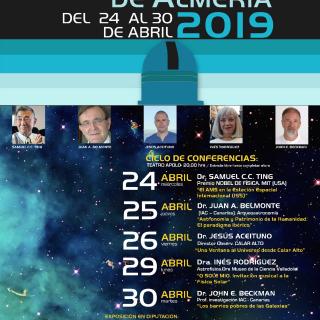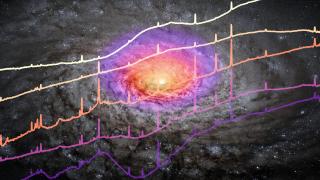Bibcode
Camps-Fariña, A.; Zaragoza-Cardiel, J.; Beckman, J. E.; Font, J.; García-Lorenzo, B.; Erroz-Ferrer, S.; Amram, P.
Bibliographical reference
Monthly Notices of the Royal Astronomical Society, Volume 447, Issue 4, p.3840-3848
Advertised on:
3
2015
Citations
8
Refereed citations
7
Description
We present a new method for the detection and characterization of
expansion in galaxy discs based on Hα Fabry-Perot spectroscopy,
taking advantage of the high spatial and velocity resolution of our
instrument (GHαFaS). The method analyses multipeaked emission line
profiles to find expansion along the line of sight on a point-by-point
basis. At this stage we have centred our attention on the large-scale
structures of expanding gas associated with H II regions which show a
characteristic pattern of expansion velocities, of the order of 100 km
s-1, as a result of both bubble shape and projection effects.
We show an example of the expansion map obtained with our method from a
superbubble detected in the Antennae galaxies. We use the information
obtained from the method to measure the relevant physical parameters of
the superbubbles, including their ages which can be used to date young
star clusters.
Related projects

Kinematic, Structural and Composition Studies of the Interstellar and Intergalactic Media
The basic objective of the broject is to investigate the evolution of galaxies by deepening our understanding of the interaction between the insterstellar medium and the stars.The main technique which we use is the two-dimensional kinematic study of whole galaxies observed using our instrument:GHaFaS, a Fabry-Perot interferometer on the William
Prof.
John E. Beckman

Nuclear Activity in Galaxies: a 3D Perspective from the Nucleus to the Outskirts
The group has two main research lines. First, the study of quasar-driven outflows in luminous and nearby obscured active galactic nuclei (AGN) and the impact that they have on their massive host galaxies (AGN feedback). As part of this project, QSOFEED (Quasar Feedback), we have obtained Gran Telescopio CANARIAS (GTC) infrared and optical
Cristina
Ramos Almeida